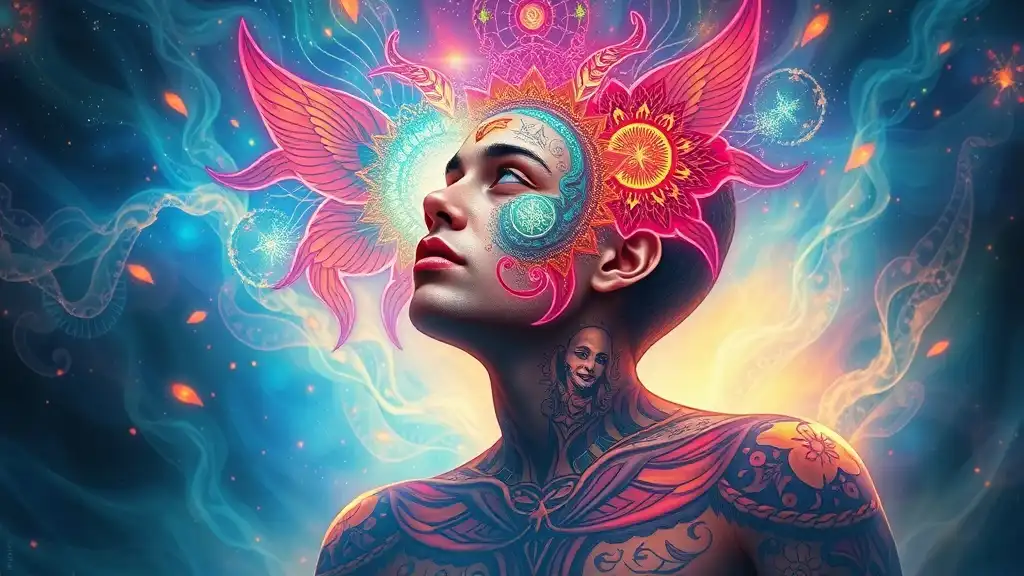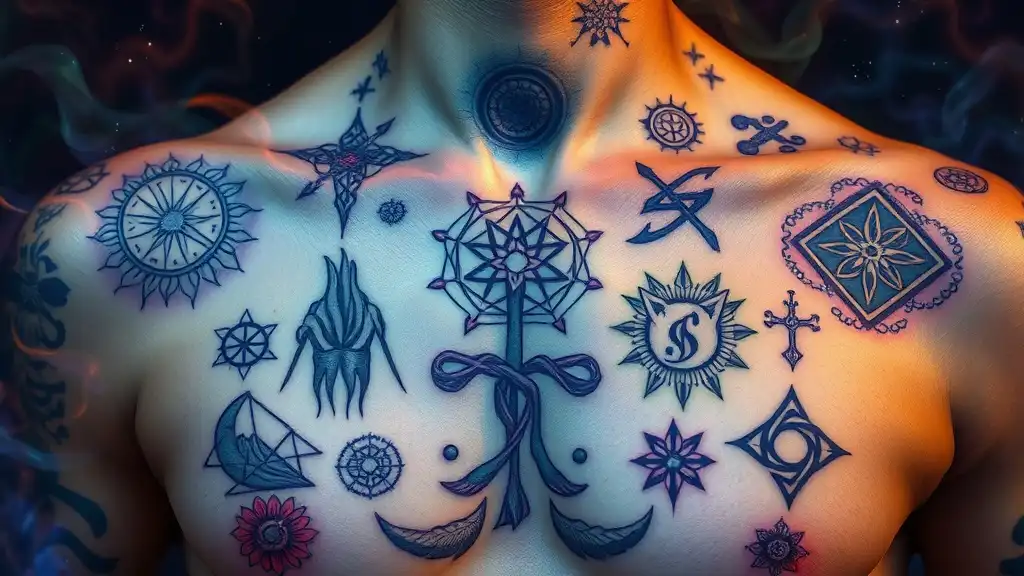Tattoos have captivated human imagination for centuries, evolving from ancient art forms to symbols of personal expression in modern culture. Today, as spirituality gains relevance in various aspects of life, tattoos increasingly serve as profound markers of inner journeys, beliefs, and identities. This exploration leads us into the fascinating intersection of tattoos and spirituality, revealing their importance across cultures, histories, and individual experiences.
The History of Tattoos
Ancient Practices
Tattoos have been a powerful means of communication and expression in many tribal cultures throughout history. In these indigenous communities, tattoos often held sacred significance, serving as rites of passage or markers of status, achievements, and personal transformations. The markings on the skin were believed to provide protection, imbue the wearer with spiritual strength, or signify a deep connection to their ancestors and the universe.
Tattoos in Eastern Philosophy
In Eastern traditions, particularly Buddhism and Hinduism, tattoos often embrace spiritual themes, reflecting beliefs and philosophies. In Buddhism, for instance, sacred symbols like the lotus or the mandala are commonly tattooed, representing spiritual awakening and the journey toward enlightenment. Hindu tattoo art may include imagery of deities, conveying devotion and protection. Each tattoo tells a story of spiritual connection, reinforcing the idea that our bodies can be sanctuaries of divine expression.
Western Perspectives
The perception of tattoos has transformed dramatically in Western societies. Once considered a taboo, body art has found acceptance and embrace. This cultural shift has allowed for the emergence of spiritual tattoos, where individuals seek to convey personal beliefs, values, and insights. Today, spiritual tattoos serve as bridges between the physical and metaphysical, forging connections to deeper aspects of self.

Understanding the Spiritual Meaning Behind Tattoos
Tattoos as Symbols
At their core, tattoos are powerful symbols in spiritual expression, representing not just aesthetics but deeper meanings. Common motifs—such as feathers for freedom, anchors for stability, and infinity symbols for eternal life—carry rich commentaries on human experience. These symbols communicate personal truths and serve as reminders of the wearer's spiritual journey.
Personal Storytelling
Each tattoo often tells a story unique to the individual. They may embody personal trials, triumphs, or transformations. For many, the act of choosing a tattoo serves as a healing ritual, allowing them to reconnect with pivotal life events. It becomes a tangible representation of personal narratives, celebrating moments of growth, resilience, and introspection. This storytelling aspect empowers individuals and fosters a deeper relationship with their tattoos.

Cultural Significance of Tattoos
Tattoos and Identity
Tattoos are not just personal expressions; they are also reflections of cultural heritage. For many, tattoos serve as declarations of identity, linking them to their ancestral lines. They can express pride in one’s ethnicity, rebellion against societal norms, or commitment to a particular group or movement. In this way, tattoos affirm and celebrate diversity, enriching the narrative of human experience.
Collective Spirituality
Tattoos can foster a sense of community and collective spirituality. When individuals gather over shared beliefs or experiences, tattoos often serve as visible signs of unity. Cultural practices involving body art help strengthen communal bonds, marking not just individual experiences but shared narratives that connect the larger community. Thus, tattoos become not just personal symbols, but communal expressions of collective identity and spirituality.

Choosing a Tattoo with Spiritual Meaning
Reflection and Intention
When selecting a tattoo, the process begins with self-reflection. What does this tattoo represent in your life? Understanding motivations and desires play a crucial role in choosing a meaningful design. Setting intentions allows the tattoo to embody a purpose, whether it’s to symbolize change, honor a loved one, or commemorate a significant life event. Approaching this decision with mindfulness ensures the tattoo resonates deeply with personal values and beliefs.
Design Considerations
Choosing a tattoo design involves thoughtful consideration of symbols that resonate spiritually. The selected imagery should align with one’s inner truths, allowing the tattoo to serve as a daily reminder of those beliefs. Additionally, elements like color and placement can deepen significance; for example, a tattoo placed over the heart may symbolize love, while one on the wrist can represent a constant reminder of personal resolve.
Working with Tattoo Artists
Finding a tattoo artist who understands the spiritual significance of the work is essential. Artists experienced in spiritual tattoos can collaborate effectively, helping to translate visions into meaningful designs. Open communication about ideas and intentions fosters a partnership, resulting in art that embodies personal stories and spiritual essence.

Caring for Your Spiritual Tattoo
Physical Care
After obtaining a tattoo, physical care is vital to keeping the ink vibrant and the skin healthy. Proper aftercare—such as regular cleaning, moisturizing, and sun protection—ensures tattoos maintain their appearance while serving as enduring representations of personal significance. Caring for the tattoo is also an acknowledgment of its spiritual meaning, signifying respect for the new addition to one’s body story.
Spiritual Care
Beyond physical maintenance, spiritual care can nurture the connection individuals have with their tattoos. This could involve daily affirmations related to the tattoo’s meaning, meditative practices focusing on the represented symbols, or simply taking time to reflect on its significance. Making the tattoo a part of one’s spiritual practice fosters a deeper relationship with the art and enhances its role in one’s life.

Conclusion
In summary, the spiritual meaning of tattoos transcends mere aesthetics, offering a profound canvas for self-expression, storytelling, and cultural identity. By exploring personal motivations and connecting with deeper beliefs, tattoos can manifest as landmarks on our spiritual journeys. As society continues to embrace tattoos, these marks become not just reflections of individual experiences but powerful symbols embodying collective spirituality. Whether a statement of identity, a symbol of resilience, or a personal talisman, tattoos remain vital in expressing the intricate tapestry of human life and spirit.



















